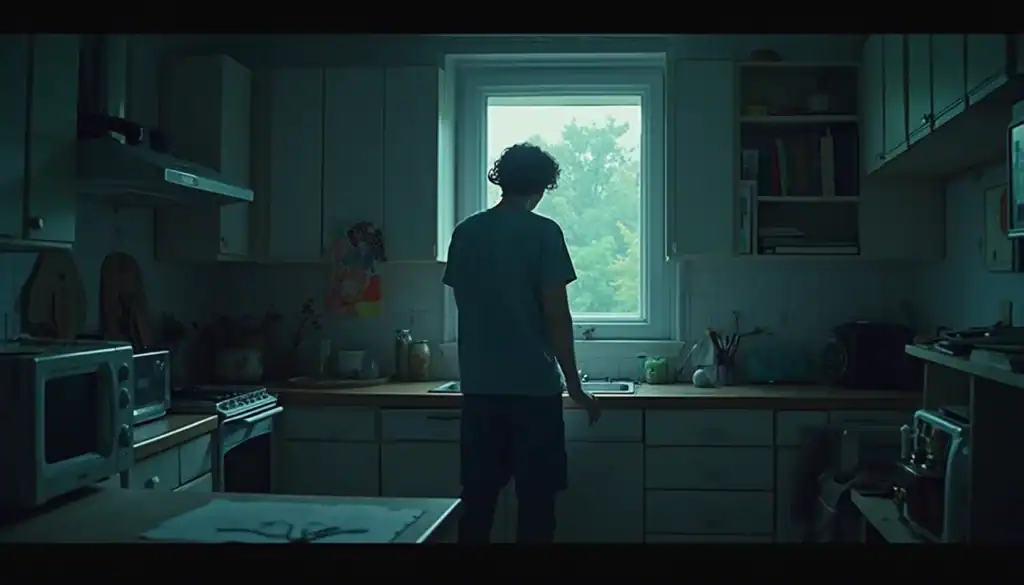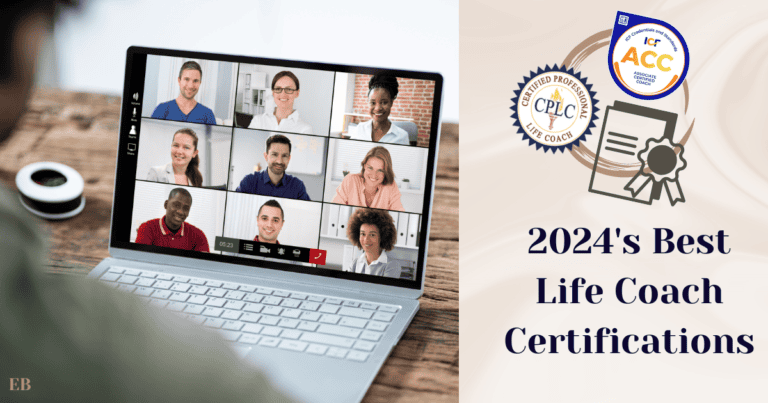How to Do a Weekend Digital Detox: A Beginner’s Guide

Did you ever have the thought, that you might spend too much time on your phone?
That the way you use your phone actually has a negative impact on many areas of your life?
And did you ever think that a break from your phone might be helpful to your mental wellbeing?
If you could answer at least one of those questions with yes, you’re absolutely right here, and if you don’t, you probably are as well. I don’t think there is anybody in modern civilization who can not profit from one or two days without their phone and similar devices.
If you are playing with the thought of making a weekend detox, just do it. There is really nothing you can loose but a lot to be gained from it.
In this post, I will explain to you exactly how to do a weekend digital detox, what the most important things you need to do and prepare, so you can get the most from the experience.
What Is a Digital Detox and Why Your Weekend Matters
I can’t remember exactly what the trigger was, but when I was about 17 years old I started to realize that I my phone usage is problematic, and that I should try to reduce it. Over the years I looked up many different ideas and techniques and tried most of them.
That’s when I discovered what a digital detox actually means. A digital detox is simply taking intentional breaks from your digital devices and online activities to reduce stress and reconnect with the real world around you. Think of it like giving your brain a much-needed vacation from the constant ping of notifications and the endless scroll of social media feeds.
The science behind why this works is pretty fascinating. Research shows that excessive screen time literally rewires our brains, making us crave that next dopamine hit from likes, comments, and new content. When we’re constantly connected, our stress hormone cortisol stays elevated, which messes with everything from our sleep patterns to our ability to focus on simple tasks. The good thing is that once we take a break from our screens, our brain eventually will adapt again, and the need for constant stimulation will decrease.
WE ARE ESSENTIALLY REWIRING OUR BRAINS!!!
Here’s why weekends are absolutely perfect for beginners like I was back then. You’ve got 48 hours of built-in flexibility without work obligations breathing down your neck. No boss expecting immediate email responses, no urgent deadlines looming over your head. Plus, most people are already in a more relaxed mindset on weekends, which makes it easier to resist the urge to check your phone every five minutes.
What really surprised me was how much mental space I gained after just one weekend. Tasks that usually felt overwhelming suddenly seemed manageable. Conversations felt deeper and more genuine. Ah, and if one weekend already sounds like a lot, 24 hours is also perfectly fine as a first try.
Just a quick note, there is also a different kind of digital detox. One where you take a longer time period: 2 weeks to 3 months, where you drastically reduce screen time, and stay away from certain apps etc. Both versions are super helpful, and I suggest you try both. Here we focus on the short one. But since it’s the short version, we have to stay completely away from most devices to get a similar effect.

Preparing for Your Weekend Digital Detox: Essential Pre-Planning Steps
My first digital detox was wonderful, because I had a clear plan, a reason why and i set up everything so it would be easy to follow through. I did only 24 hours though.
First of all, even if you will be away from your phone, you need to decide what happens with all the emails, text messages, calls, etc, while you are away. You may want this prepared if it stresses you. There are many tools at your disposal: You can activate an automatic response for emails, a special voicemail for missed calls, or you can whitelist certain numbers so that they can still reach you in case of an accident.
Also, inform your friends and family that you are planning to do this digital detox weekend and that you can not be reached in those days.
The entertainment prep is where things get interesting. Well, you do not want to sit around all weekend and have nothing to do. The more activities you plan, the easier it will be. I can not tell you what to do; this is special to you. But take maybe 20 min sit down and think about what you like to do and what you can easily do without a phone. You don’t need to plan every minute, but make sure you have at least a few activities planned. Those can be simple ones, like going on a walk with your spouse, or more adventurous, like visiting a new city without a phone.
If you’re planning to go somewhere, print out maps, plan ahead where you wanna go and what you wanna look at, so that there is no need for your phone on that trip. If you, like me, would be completely lost with a printout map, then see it as a funny challenge. Lost somewhere in the forest trying your hardest to find the right way. Stuff like that will stick to your brain and create a meaningful memory.
One trick that saved my sanity: I write down a “boredom menu” beforehand. When that inevitable moment hits around 2 PM Saturday when you’re staring at the wall wondering what humans did before Netflix, you pull out the list. Mine includes things like reading a book, doing some yoga, going for a walk, cooking a meal or playing a card game with my family.
I would try not to be alone for most of the time, it is just way easier like this. Plus this is about making real experiences again, and those seldom happen when you’re alone.

Setting Boundaries: What to Include and Exclude from Your Detox
The truth is, without clear boundaries, your digital detox becomes more like digital suggestion time. You need to decide upfront which devices are completely off-limits and which ones get limited, specific use. For most people, smartphones are the biggest culprit – they’re the gateway drug to endless scrolling and notification checking.
Your phone must be off the entire detox, that should be clear. Now, we need to focus on all the other devices we use regularly. Stuff like:
- TV’s
- Laptops/ PC’s
- E readers
- Any gaming devices
- Smartwatches
Here 2 thoughts to consider: First of all, if you say that you can easily live two days without one of those devices then put it away, off limits. Even if you don’t think the device would harm your detox, away is better. The more you need to focus on “real” experiences, the better. The second thought is if you use the device often to distract yourself from reality, and yes reading is also a distraction, you should really think about leaving it out completely or putting some clear boundaries. For example, you will read only in the evenings after dinner, maybe one hour to relax before going to bed.
Now, let’s talk about what needs to stay accessible because, honestly, we’re not going completely off the grid here. Emergency contacts could be important. If you feel like someone needs to be able to reach you in case of an emergency, then you have several options. Like taking a flip phone with you. (they are 20 bucks or something), Or keep your phone in your travel bag, but put it into do not disturb, with 2 emergency contacts who can still reach you.
The timing piece is crucial and something I totally botched in my early attempts. You can’t just say “sometime this weekend I’ll stop using my phone.” Pick specific start and end times. Think about what makes most sense: I like to start in the early evening, so i have the benefit of waking up already free from the device and like this, I can enjoy my morning.
Now, take some time to think about your gray areas. What about music, do you have Alexa/Siri, your Kindle with internet access, will you be using your smartwatch, how do you set the best boundaries? I can not tell you what is right or wrong for you. But I can tell you it’s almost always easier to put the device away for good than to use it with boundaries. If it’s away, you will forget about it soon.

Overcoming Digital Detox Challenges and FOMO
FOMO is a real challenge nowadays. Two days basically of the internet😱, there is so much to be missed.
That’s why we will talk a bit about how to deal with FOMO and maybe even turn it into JOMO, the joy of missing out.
We are so conditioned to always recieving the latest new, infos, insights etc. Our brains have increasingly become wired to want the latest infos now. And we have it all on you fingertips. That’s why there is FOMO and it’s a real thing.
JOMO is the antidote; when we are in FOMO, we are thinking about the negative aspects of not having that news. We can not participate, maybe we miss a nice opportunity, we are no longer part of the community… what if you would just shift your focus. Instead, think about all the positive effects that missing this info has on you: You are more relaxed right now, less anxious, you have time for what truly matters, and your attention span increases.
I know it sounds too easy, but I have come to believe that it is often just a tiny shift in your mindset that can transform the whole experience.
Boredom is the other hard challenge, it’s when we are prone to use our phone, or TV etc, be prepared for it. First of all, learn to enjoy it a little, I know boredom is no nice experience, still it is extremely calming, do just have nothing to do. You do not have to make it go away immediately. Practice a little mindfulness when it arises, observe your boredom, and sit with it. Your sense of time will shift dramatically. Enjoy the moment where life does not just rush by.
Obviously, we don’t wanna sit in it endlessly. That’s where you need to be prepared, have a little workout planned for when you have 20 minutes and nothing to do, or a yoga session, or go on a walk. The better you prepare for those moments, the easier it will be. Often, when we are bored, we just lack the energy to do what we have planned. My best trick here is 20 burpees, or dancing through a song you love. This will surely boost your energy again.

Making Your Digital Detox Sustainable: Integrating Mindful Technology Use
That’s when I realized the secret sauce wasn’t just about disconnecting—it was about reconnecting in a way that actually stuck. The real magic happens in those final few hours of your detox weekend, and honestly, most people blow it because once they get their devices back they lose sight of it all.
The detox is a nice experience on its own, and if you find ways to make the learnings stick, it will transform into something much bigger.
Please schedule some time after your detox to answer the following questions:
- How did I feel during the detox? What maybe suprised me, and what was as expected?
- What are the three biggest takeaways I learned during this time of my phone?
- Is there something about my relationship with my devices I would like to change after the experience?
- Do I wanna repeat this experience maybe once a month?
Be real there is no right and wrong, what can you take with you from this time and what do you wanna change. If you are looking for further ways how you can implement habits in your everyday life, read the following post on minfull social media habits.
The biggest mistake I see people make is trying to implement too many changes at once after their weekend detox. Pick one or two sustainable habits and master those before adding more. Trust me, it’s better to consistently do phone-free mornings than to attempt some elaborate digital wellness routine that you’ll abandon by Wednesday.
Conclusion
Now you have learned how to do a weekend digital detox. It is no rocket science. I talked about a lot. These are just tips to make it easier. But in its core, it’s so simple:
Just spend some time away from your devices and look at how you react to it, how it make you feel, and how the phone-free experiences are. You can do it as long as feels right for you.
I want you too feel comfortable and don’t stress you, nothing will happen if you fail for whatever reason. The most important part is to observe yourself and to maybe find back to a way of experiencing life more.
I feel way more relaxed if I spend some hours of my phone; all of a sudden i feel centered, calm and concentrated. When my phone is near, I am always a little agitated. That was a super helpful learning for me. There is so much to gain from those 24 to 48 hours so try it.






